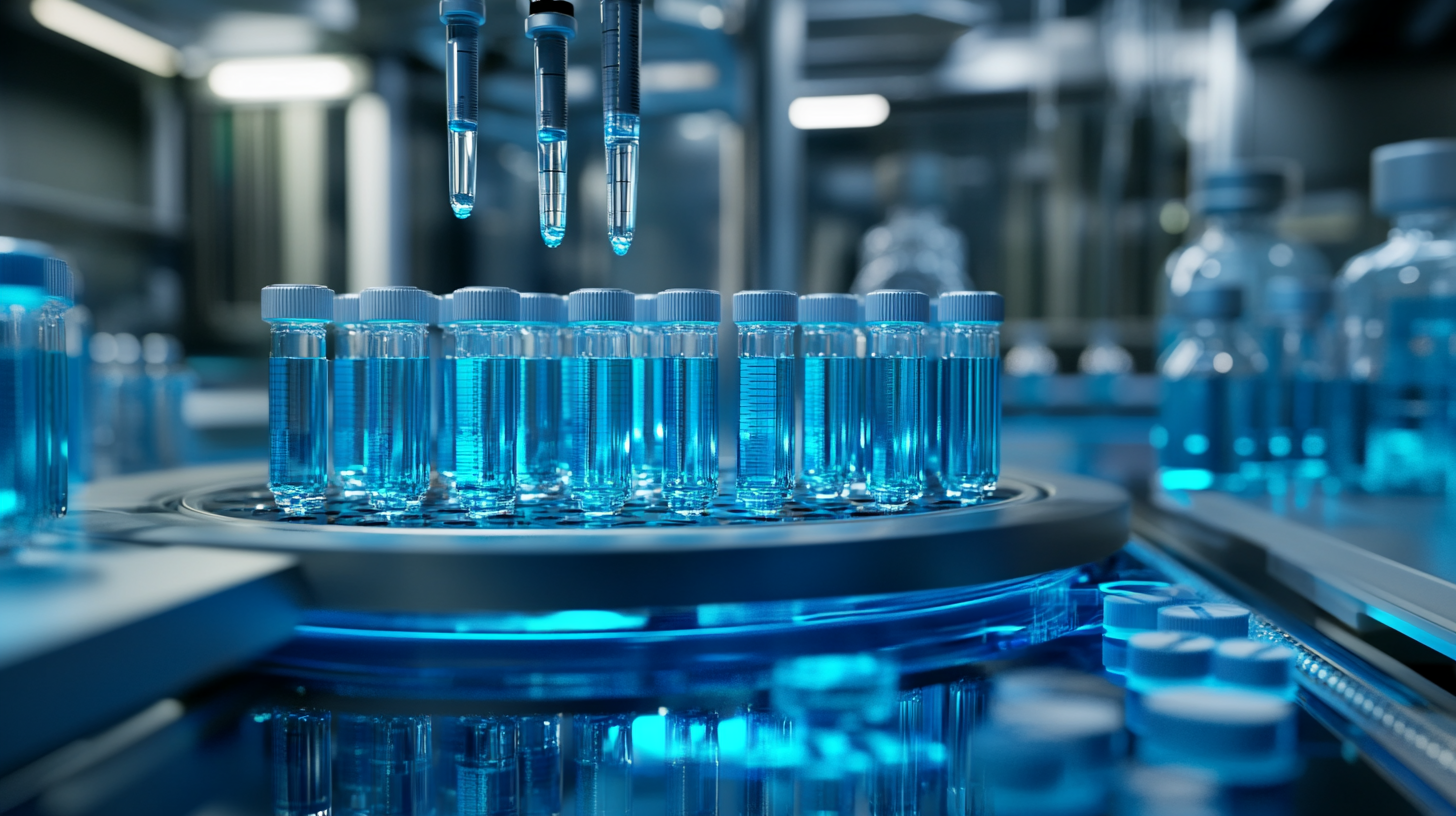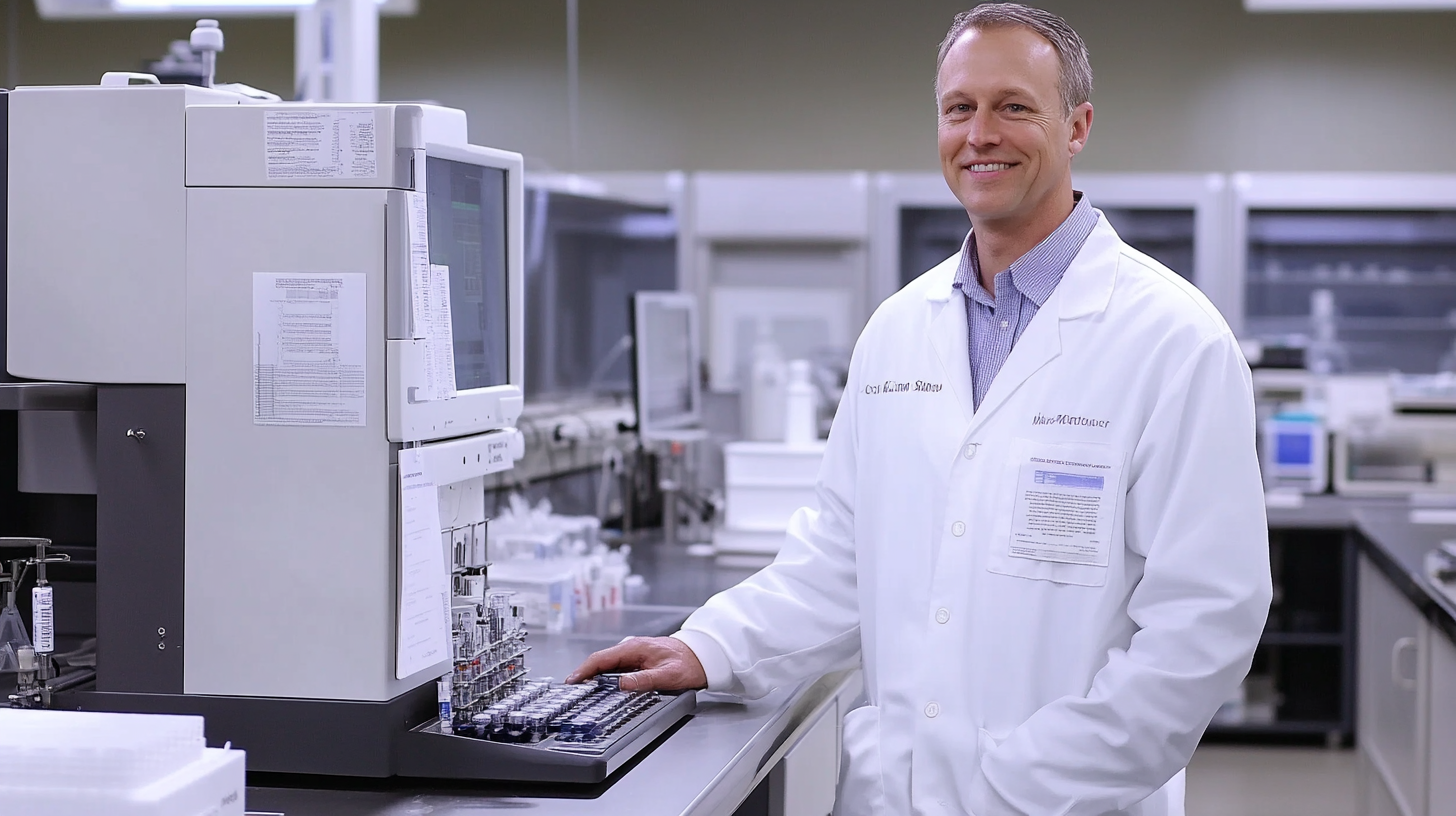As the pharmaceutical industry evolves, the demand for advanced manufacturing processes has led to significant innovations in Pharma Equipment. With a projected global Pharma Equipment market growth expected to reach $9.36 billion by 2026, driven by increasing investments in research and development and the ongoing need for efficient production, the importance of these technologies cannot be overstated. Industry reports highlight that automation and smart manufacturing solutions are not just improving operational efficiencies, but are also optimizing product quality and compliance with stringent regulatory standards. Moreover, the rise of personalized medicine and biologics adds another layer of complexity, necessitating equipment that can adapt quickly to new production demands. In this context, revolutionizing pharmaceutical manufacturing with advanced Pharma Equipment solutions is not just a possibility but an urgent necessity for companies aiming to stay competitive and meet the evolving needs of the market.

The pharmaceutical manufacturing sector is undergoing a transformative shift, driven by innovative technologies that shape its future. Advanced pharma equipment solutions are at the forefront of this revolution, introducing automation, AI-driven processes, and real-time data analytics. These technologies not only enhance efficiency but also ensure higher product quality and compliance with stringent regulatory standards. By integrating these advancements, pharmaceutical companies can streamline production lines, reduce downtime, and respond more effectively to market demands.
Moreover, the rise of smart manufacturing technologies is enabling personalized medicine and quicker drug development cycles. With the implementation of IoT devices, manufacturers can monitor equipment performance and detect anomalies before they escalate into costly disruptions. This proactive approach not only saves time and resources but also significantly enhances patient safety. As the industry continues to embrace these innovations, pharmaceutical manufacturing is poised for a future that prioritizes agility, precision, and sustainability, ensuring that the needs of patients and healthcare providers are met with unprecedented efficiency.

The pharmaceutical manufacturing industry is undergoing a significant transformation, driven by advanced equipment solutions that promise substantial cost reductions. Recent studies indicate that implementing these cutting-edge technologies can lead to a decrease in production costs by up to 30%. This reduction stems from improved efficiency and less downtime, allowing manufacturers to allocate resources more effectively and respond swiftly to market demands.
Moreover, advanced pharma equipment is designed to optimize the entire production process, enhancing automation and precision in operations. Enhanced data analytics capabilities enable real-time monitoring and adjustments, thereby minimizing waste and eliminating bottlenecks in the production line. As a result, companies not only see financial benefits but also experience an increase in product quality and consistency, further solidifying their competitive edge in the market.
Investing in these advanced solutions is no longer a luxury but a necessity for pharmaceutical companies looking to thrive in an increasingly competitive landscape. The integration of such high-tech equipment not only paves the way for economic efficiencies but also aligns with the industry's push towards sustainable practices, ensuring lower environmental impact over time.
| Statistic | Value | Impact on Cost Reduction (%) |
|---|---|---|
| Average Equipment Cost Reduction | $500,000 | 15% |
| Increase in Production Efficiency | 30% | 20% |
| Reduction in Waste Material | 40 tons/year | 10% |
| Employee Efficiency Improvement | 25% | 5% |
| Overall Operational Cost Savings | $1.2 Million | 30% |
The pharmaceutical manufacturing sector is experiencing a significant transformation, largely driven by automation and advanced equipment solutions. According to a report by McKinsey, nearly 30% of pharmaceutical companies plan to invest in automation technologies within the next five years to boost operational efficiency. This shift aims to streamline production processes, reduce human error, and enhance product quality while ensuring compliance with rigorous industry regulations.
Automation facilitates real-time monitoring and data collection, allowing manufacturers to make informed decisions quickly. For instance, a study published by the International Journal of Pharmaceutical Sciences found that automating batch production could reduce the time spent on manual processes by up to 50%. Furthermore, the integration of AI and machine learning helps in predictive maintenance, thereby decreasing downtime and optimizing resource allocation. As the industry continues to adopt these advancements, companies can expect to see significant improvements in both productivity and profitability, ultimately benefiting public health through the faster delivery of essential medications.
The impact of Industry 4.0 on pharmaceutical manufacturing is profound, given the increasing integration of advanced technologies into the production process. Automated material handling (AMH) equipment, such as automated storage and retrieval systems and conveyor systems, is becoming crucial in enhancing efficiency and accuracy in manufacturing operations. These technologies not only streamline workflows but also allow for real-time data tracking and inventory management, significantly reducing the risk of human error and improving overall productivity.
Furthermore, the role of IoT in this transformation cannot be understated. The Internet of Things allows for greater connectivity between devices, enabling pharmaceutical manufacturers to collect and analyze data to optimize processes and enhance decision-making. As factories modernize, integrating IoT solutions leads to improved maintenance schedules, predictive analytics, and enhanced collaboration across various departments. This digital evolution fosters an environment where agility and innovation thrive, positioning pharmaceutical companies to better meet the demands of a dynamic market while ensuring compliance and safety in their operations.
In recent years, sustainability has emerged as a pivotal focus in pharmaceutical manufacturing. With increasing regulatory pressures and a global shift towards environmentally responsible practices, companies are leveraging data-driven insights to enhance their operations. According to a recent report by Deloitte, pharmaceutical companies that implement sustainable practices can reduce operational costs by up to 30%—a significant incentive for an industry known for its high overheads.
Data analytics plays a crucial role in identifying inefficiencies within the manufacturing process. For instance, a 2022 study published by PwC highlighted that firms employing advanced analytics saw a 25% improvement in production efficiency while simultaneously decreasing their carbon footprint. These innovations not only contribute to sustainability goals but also enhance the overall quality and safety of pharmaceutical products. As manufacturers increasingly adopt technologies like AI and IoT, they gain access to real-time data that informs better decisions regarding resource utilization and waste management, ultimately aligning profitability with environmental stewardship.
Additionally, as reported by the International Society for Pharmaceutical Engineering (ISPE), over 65% of pharmaceutical executives recognize the importance of sustainability in their corporate strategies. This trend indicates a significant shift in industry priorities, urging manufacturers to adopt eco-friendly practices not only as a compliance measure but as a core aspect of their business models. The integration of sustainability into pharmaceutical manufacturing represents both a challenge and an opportunity for stakeholders looking to thrive in an increasingly competitive landscape.
